ReCHARGE and ECHO Studies
ReCHARGE Researchers and Advisors
-
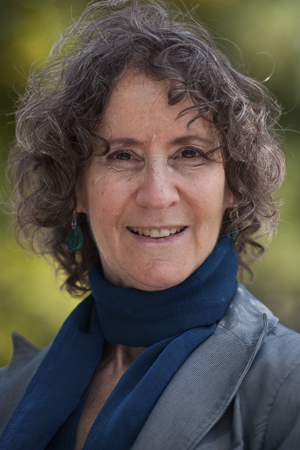
Irva Hertz-Picciotto, Ph.D.
As an environmental epidemiologist with over 300 scientific publications, Irva Hertz-Picciotto has devoted her career to understanding environmental exposures, including chemicals, pollutants, nutrition, and social factors, their interactions with genes, and their effects on pregnancy, the newborn, and early child development. She has also contributed to the literature on epidemiologic methods, particularly for studies of pregnancy outcomes. Currently she directs the UC Davis Environmental Health Sciences Core Center (1-P30-ES023513) that brings together about 30 faculty from six Schools and Colleges. For the last fifteen years, she has directed a comprehensive research Program on Environmental Epidemiology of Autism and Neurodevelopmental Disorders (PEEAN) that includes the CHARGE (CHildhood Autism Risks from Genetics and the Environment, R01-ES015359) and MARBLES (Markers of Autism Risk in Babies – Learning Early Signs) Studies. The PEEAN has produced seminal papers linking autism to an array of risk and protective factors, and generated clues about mechanistic pathways involving immunologic, metabolic, and mitochondrial dysfunction. Key results have been the demonstration of increased risks for autism and other neurodevelopmental delays associated with prenatal exposures to: pesticides, traffic-related and regional air pollution, maternal metabolic conditions of obesity, diabetes or hypertension, low maternal periconceptional intake of prenatal supplements or folic acid, untreated fever in pregnancy, and selective serotonin reuptake inhibitors. The majority of these findings have now been replicated. Her work also identified risks from candidate gene mutations and copy number variation, as well as the first examples of gene-by-environment interactions in autism. To date, Dr. Hertz-Picciotto’s research on modifiable factors opens the door for potential interventions that could mitigate impacts of environmental insults, dramatically improve outcomes for susceptible children, and bring about a reduction in currently growing rates of autism.
Her professional accomplishments include having chaired several National Academy of Sciences, Engineering and Medicine (formerly NAS and IOM) Panels on health outcomes from environmental chemicals, and serving on numerous advisory panels for the U.S. EPA, National Toxicology Program, International Life Sciences Institute, and California Air Resources Board and the Proposition 65 Committee on Carcinogens. She also has held positions as President of the Society for Epidemiologic Research, and President of the International Society of Environmental Epidemiology (ISEE), and as member of editorial boards for Epidemiology, American Journal of Epidemiology, Environmental Health Perspectives, Autism Research, and Environment International. In 2011, she received the ISEE’s Goldsmith Award for Sustained and Outstanding Contributions to Environmental Epidemiology.
-
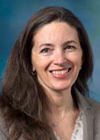
Deborah H. Bennett, Ph.D.
Deborah Bennett’s research focuses on the fate, transport, and exposure of particulate matter and compounds in multi-scale applications, including direct consumer product use, and indoor and outdoor multimedia environments within the context of both environmental epidemiology and environmental risk assessment. She utilizes both modeling and measurement techniques, bridging the gap between these two lines of inquiry. Her research interests also include development of methods to assess exposures to air pollution, pesticides, and compounds found in consumer products in epidemiologic studies of autism. She also conducts indoor fate and exposure modeling and measurement studies to understand potential impacts of both organic compounds released indoors and the impact of air cleaners on indoor PM levels.
She has a strong track record of collaborations in large epidemiologic studies, including the CHARGE and MARBLES studies, and have provided exposure science expertise to these investigations, ensuring that the best methods to estimate exposure are utilized. She is currently Co-Chair of the ECHO Air Pollution working group, member of the Chemical Working Group Steering Committee, and a member of the Biospecimens working group, the Blood Protocol working group, and the Geospatial working group. She is also a co-developer of the dietary contaminant questions and the environmental chemical questionnaire. At UC Davis, she oversees specimen collection, analysis and interpretation of the exposure stressors, including chemicals, air pollution, nutritional, and neighborhood level factors.
-
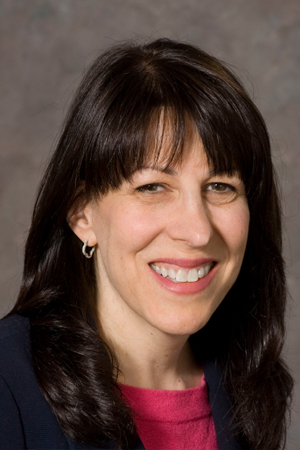
Julie B. Schweitzer, Ph.D.
As a licensed, clinical psychologist and researcher in child psychopathology for more than two decades, Julie Schweitzer has been conducting research in neurodevelopmental disorders, mostly on ADHD and symptoms of hyperactivity, inattention and impulsivity with funding from NIH and other sources. This includes a longitudinal study, funded by NIMH, on the development of self-control in typically developing adolescents and others with ADHD. In addition, Dr. Schweitzer also has over 25 years of experience in working with populations with autism and related neurodevelopmental disorders. Most recently, she has joined with colleagues (Irva Hertz-Picciotto, Solomon, Schmidt and Bennett) at the MIND Institute in projects to explore development and how it relates to the environment, ADHD and autism symptoms and other psychopathologies emerging in childhood and adolescence (e.g., anxiety & depression). Dr. Schweitzer brings her expertise in psychology, development, childhood psychopathology, psychometrics and clinical research to our cohort at UC Davis, the ReCHARGE study, to other cohorts participating in ECHO and the ECHO-wide initiatives. She uses “team science” skills that she has developed while working on other large scale projects. She has additional relevant experience in collaboration and team science through her formal role in facilitating team science at UC Davis in the Clinical and Translational Science Center.
-
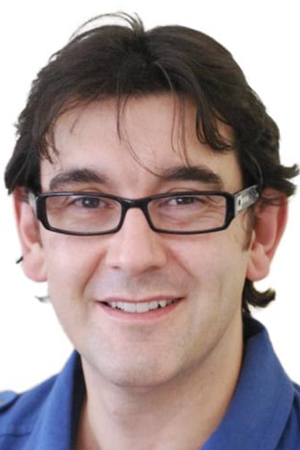
Paul Ashwood, Ph.D.
Paul Ashwood has a well-established track record of innovation and accomplishment in the field of neurodevelopmental disabilities in particular autism. He has specific training and expertise in how the immune response may impact the etiopathogenesis of autism. Dr. Ashwood has a broad background in clinical immunology and immunopathology, with over 20 years of specific training and expertise in key research areas. His research addresses the causes, consequences, prevention, and treatment of autism, and includes the use of a number of animal models of autism that utilize maternal immune activation (MIA) during gestation to induce behavioral change in the offspring. He has laid the groundwork for the proposed research by developing a novel mouse model of maternal allergic asthma (MAA) that elicits altered neurodevelopment and behavioral outcomes and is driven through immune mediated mechanisms. This model is supported by large case-control population based clinical studies that showed that maternal allergies are a risk factor for neurodevelopmental disabilities. Moreover, the study showed that maternal blood cytokine profiles in mid-gestation with an allergy profile are associated with a risk for children later diagnosed with neurodevelopmental disorders. He has successfully collaborated with Hertz-Picciotto, LaSalle, and van de Water on several studies including CHARGE, MARBLES and the Children’s Center for Environmental Health and has a demonstrated record of successfully administrating several large projects (e.g. staffing, research protections for human studies, budget), collaborations with multi-disciplinary teams of researchers, and produced many peer-reviewed publications from each project. As a result of these previous experiences, He is aware of the importance of good communication within a team of investigators, and organizing and maintaining a realistic and productive research plan, timeline and budget. He is currently a member of six ECHO working groups, Obesity Outcomes; Data Analysis; Pre-, Peri-, Post-Natal Outcomes; Neurodevelopmental Outcomes; and Positive Health.
-

Cristina Davis, Ph.D.
Cristina Davis’ research contributes to three key topics surrounding non-invasive chemical and biological sensing: developing new mobile chem/bio sensor and instrument platforms for non-invasive health and environmental monitoring; fundamental biomarker search and identification for non-invasive diagnostics; and developing new algorithms and signal processing techniques for chem/bio sensing. Her background in engineering and quantitative sciences as well as fundamental biology/physiology makes her uniquely suited to mentor students working on instrumentation projects for health monitoring. The UC Davis campus aggressively supports highly interdisciplinary research, and she has productively worked with her long-time clinical collaborator Co-PI Nick Kenyon for almost a decade on this topic. She has had the privilege of helping serve as an Associate Director of the Translational Technologies, Methodologies, and Resources Program, for the UC Davis NIH NCATS Clinical and Translational Sciences Center (CTSC). She has developed a number of sensitive wearable sensors suitable for use on children, both with and without conditions such as asthma or developmental delay. She will be piloting one or more of her devices in a small subset of ReCHARGE participants and in participants from the ECHO CANDLE study in Tennessee. If successful, she will work with the overall project on how this device might be usable in multiple ECHO cohorts.
-
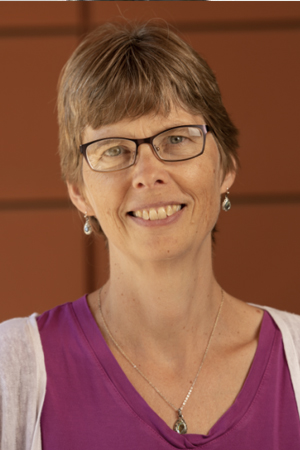
Janine LaSalle, Ph.D.
Janine LaSalle’s academic training and independent research career has spanned multiple classic disciplines, from training in Immunology and Human Genetics to my more recent research interests in Neuroscience, Epidemiology, and Toxicology. What brings these fields together in her career is her longstanding interest in epigenetic mechanisms that act at the interface of genetic and environmental factors in the developing brain. Over the past 20 years, her laboratory has performed pioneering research in the fields of Prader-Willi, Angelman, Dup15q, and Rett syndromes and “Neurodevelopmental Epigenetics” by characterizing epigenetic pathways of gene dysregulation in autism. In the past decade, her lab has effectively moved to genomic sequencing methods for understanding neurodevelopmental epigenetics and environmental epigenetics at the whole genome level, and have been involved in several collaborative projects using these tools. She is responsible for the laboratory analysis of DNA methylation and epigenetics. She works closely with Irva Hertz-Picciotto on the intergenerational study comparing DNA methylation at birth in both the parents (as newborns) and the child, which will extend to a multi-cohort project in collaboration with investigators from Michigan State University. In the UG3 phase, her lab tested saliva samples as a source for DNA methylation studies, and the results will support incorporating grandparents’ saliva so as to include three generations. She participates in writing manuscripts evaluating DNA methylation as an effect modifier or mediator of environmental exposures in relation to the pre- and late adolescent outcomes. She works closely with Tancredi on analyses involving DNA methylation data, and will guide other investigators with interpretation of the results, and is a member of the Biospecimens Placenta/Cord CPS team and a member of the Epigenetics full working group.
-
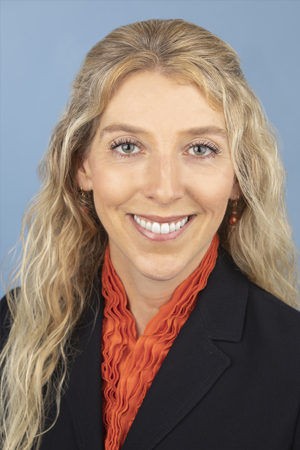
Rebecca J. Schmidt, Ph.D.
Rebecca Schmidt’s research goal is to advance understanding of how environmental exposures, primarily those occurring during gestation, interact with genetic susceptibility to influence neurodevelopmental outcomes of children. As a molecular epidemiologist, she approaches epidemiologic research from a mechanistic and pathways perspective. Her background includes training in biology, nutritional epidemiology, epigenetics, gene-environment interaction assessment and maternal and child health, with an emphasis on neurodevelopment, including comprehensive, interdisciplinary training in autism research by world-renowned leaders in the field at the UC Davis MIND Institute. Because nutritional factors have prominent influences on epigenetics and gene expression and are critical during the perinatal period, her research has studied nutrient effects on neurodevelopment as they interact with environmental exposures and the genome. This includes highly recognized work in CHARGE where she and colleagues found some of the first evidence in the autism field for a potentially protective effect of folic acid-rich prenatal vitamins, and possibly the first example of gene x environment interaction in autism, between prenatal vitamins and folate-dependent one-carbon metabolism genes. She co-led efforts to expand environmental studies by developing a semi-validated early life environmental exposure questionnaire (ELEAT) used in international autism studies. She lead research on gene-environment and nutrient-environment interactions in autism, working towards a deeper understanding of mechanisms involved, primarily epigenetic mechanisms, as this field provides ground-breaking framework for intersections between environmental and nutrient influences on methylation reactions during critical periods of embryonic epigenetic programming (a, b). This work includes leading an R01 focused on understanding the role of folate and DNA methylation in the MARBLES and EARLI high-risk cohorts. In addition to leading the continuation of the MARBLES high-risk sibling cohort study and efforts to promote the usefulness of its data and sample repositories, she has nearly two decades of epidemiologic experience, including data collection, cleaning and analysis, and sample collection, processing, and measurements; and translation and outreach. She has been a CHARGE co-investigator and collaborator of the ReCHARGE cohort PIs for many years. Given her expertise and pioneering work evaluating nutritional factors in relation to autism etiology and on nutrient-environment interactions and exposure combinations in relation to neurodevelopmental outcomes; and successful leadership of several epidemiologic mechanistic studies, including investigations of epigenetic alterations associated with environmental and nutritional exposures and autism, she has successfully lead nutritional aims and co-lead epigenetic aims for ReCHARGE and within the ECHO Consortium. She is a member of three ECHO working groups: Obesity, Diet and Nutrition; Pre-, Peri, and Post-Natal Outcomes; and Neurodevelopment, and is a co-author on two writing groups, co-developer of the dietary contaminant questions and the environmental chemical questionnaire, and co-lead on a concept proposal.
-
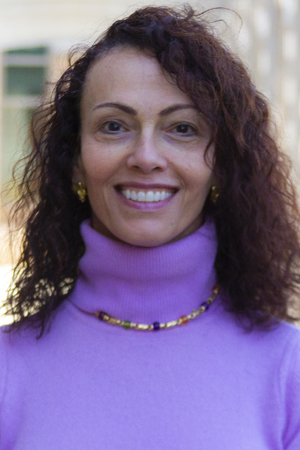
Marjorie Solomon, Ph.D.
Marjorie Solomon is a licensed clinical psychologist, and my Laboratory examines cognitive development in individuals with autism through the lifespan using clinical cognitive neuroscience methods including functional magnetic resonance imaging (fMRI). She is the Principal Investigator on two NIMH-funded R01 grants. The first examines intellectual and cognitive functioning in middle childhood (ages 8-12). The second is a longitudinal cohort sequential study of the development of cognitive control, memory, psychopathology, adaptive functioning, and academic and life outcomes in a cohort of adolescents and young adults ages 12-27 using fMRI. The UC Davis MIND Institute also was recently was awarded an Autism Center of Excellence Grant and she serves as the Principal Investigator on a clinical trial examining the effects of cognitive behavioral therapy (CBT) and medication treatment in children with autism with anxiety using fMRI as a biomarker of treatment effectiveness. She participates in Irva Hertz-Picciotto’s and colleagues’ ECHO UH3 proposal, which seeks to better understand cognitive development, psychopathology, and family functioning in children and adolescents with developmental disabilities and typical development. Her wide range of funded projects and manuscripts speaks to her high enthusiasm for the team science that will be part of the ECHO network. In particular, she provides clinical expertise on the assessment of autism symptoms of social impairment, communication deficits, and repetitive behaviors, and on the diagnosis of autism. She assists Julie Schweitzer in oversight of the clinical protocols and quality control and reliability of the test data, and has primary responsibility for development of the variables summarizing treatments and services that children have received for their autism or other developmental diagnoses, from early childhood to the present. Dr. Solomon serve as the primary resource on the study team with regard to autism diagnosis. In addition, she is a member of the ECHO Neurodevelopment Outcomes working group.
-
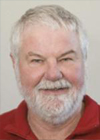
Bill Lasley, Ph.D.
Bill Lasley has four decades of expertise using the nonhuman primate (NHP) animal model for experimental studies that relate to the reproductive physiology of women. Over the past 20 years, he has been involved in longitudinal, population-based studies of mid-aged women to explore and define the endocrine foundations of the menopausal transition. Many of the endocrine methods that he employs were created in his laboratory, are unique, and provide similar, if not identical, results from human and NHP subjects in order to facilitate translational data. Dr. Lasley developed and validated most of the urinary hormone platforms that are now widely applied in epidemiological studies of women’s healthy aging and also applied in critical translational studies using the NHP. He has identified the, then novel, shift in steroid production from the ovary to the adrenal of mid-aged women during the menopausal transition (MT) over a decade ago. This concept, which is slowly currently gaining broad acceptance, provides a plausible explanation for the myriad of health trajectories that characterized the many different phenotypes expressed during the MT. The focus of his recent research has been on providing the endocrine scaffolding that underlies the wide between-woman differences in symptoms and health-trajectories in mid-aged women during the MT. He has provided experimental evidence using the NHP animal model to demonstrate previously undefined physiologic principles as well as exposing new mechanisms that may explain some common pathology. He has a broad background in reproductive physiology, and specifically in the reproductive endocrinology of the nonhuman primate animal model. His research focuses on the endocrine aspects of women’s healthy aging with emphasis on the role of steroid hormones to explain the “timing hypothesis” that has been proposed to explain some risks resulting from hormone replacement therapies in the late post-menopause. While enjoying emeritus status, he has never abandoned his research career. He is a 30-year veteran as a former Core Scientist at the California National Primate Research Center (CNPRC) where he also led the Endocrine Core and was a member of the Reproductive Sciences and Regenerative Medicine Research Unit. He maintains a relationship with the School of Veterinary Medicine in the Department of Population Health and Reproduction where he holds an academic appointment. He is the previous Chair of the recently disbanded Division of Reproductive Biology in the Department of Obstetrics and Gynecology in the School of Medicine, but remains in close contact with his colleagues there. For the ReCHARGE project, he is responsible for the substudy measuring hormones and stress markers in a subset of participants, aged 8-12 years. He provides the assays through the CNPRC Core, and works with Irva Hertz-Picciotto on the mechanistic focus relating pubertal hormones to depression and sleep disturbances, including sex differences between genders. He is a member of the ECHO Neurodevelopment working group, the Biospecimen Collection working group and the Blood Protocols working group.
-
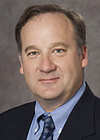
Nicholas Kenyon, M.D.
Nicholas Kenyon is the division chief in Pulmonary/ Critical Care and a physician-scientist with a translational research focus in adult severe asthma. His areas of emphasis are asthma and lung injury therapeutics, the role of nitric oxide in airway inflammation, and environmental triggers of lung disease. He just completed an NHLBI-funded Phase II clinical trial of L-arginine supplementation in severe asthma that was based 10 years of hypothesis-driven mouse model work in our laboratory. He is Co-PI on a U01 PRISMS grant to develop wearable environmental sensors for children with asthma. In addition, he has collaborated with other environmental health UC Davis investigators to run intervention trials in asthma, test novel therapeutics in animal models, develop novel breath sensor technologies and identify the environmental triggers for patients with asthma. His training and translational research has depended heavily on the UC Davis CTSC and interdisciplinary focus. He is also a member of the CTSC executive committee, PI and Director of the CTSC TLI Pre-doctoral Training Program, and a Co-Lead of the Career Development Program with for the UC Davis NIEHS-funded Environmental Health Center. He is the primary mentor of one K23 grantee and a secondary mentor for three other NIH K awardees, and has been actively involved in ECHO since the UG3 phase, and am a member of the Airway Disorders and Team Science working group.
-
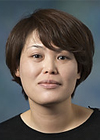
Kyoungmi Kim, Ph.D.
Kyoungmi Kim has been working on in areas of both biostatistics and statistical genetics/genomics and have served as primary Biostatistician on several large collaborative projects, many of them are in research of multi-factorial diseases such as cancer, aging, diabetes, heart disease, and autism. Her ongoing efforts include serving as Director of the Biostatistics Core on an NIA-supported P01 program project that studies the role of p66Shc gene/protein in promoting longevity, in which her role is to direct the Biostatistics and Bioinformatics Core, support each project for study design and statistical analysis, and develop statistical methodology for high dimensional biological research in genomics, transcriptomics, proteomics and drug targets. She currently serves as Principal Biostatistician on several NIH supported studies. Relevant to this project, she is a co-investigator of the NIH funded project in collaboration with Irva Hertz-Picciotto that studies the molecular phenotypes of children enrolled in the CHARGE study. She is also co-Director of the Biostatistics Core on the NIH-supported U54 MIND Institute Intellectual and Development Disabilities Research Center (IDDRC) at UC Davis. She is responsible for all leadership activities, especially quality control and evaluation of core productivity and efficiency, and managing all core activities and provides statistical consultation to IDDRC investigators. She is also a member of four ECHO working groups: Data Analysis, Middle Childhood Outcomes, Genetics and Epigenetics, and Data Harmonization.
-
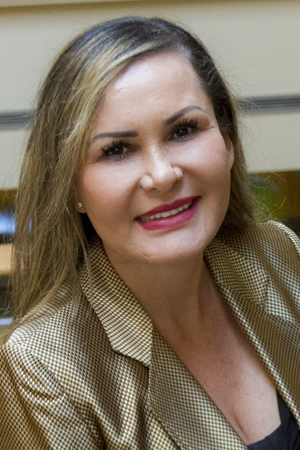
Bibiana Restrepo, M.D.
Bibiana Restrepo is a board-certified pediatrician and fellowship trained in Developmental Behavioral Pediatrics with more than 25 years of experience in the medical field and over twelve years of experience caring for children and their families. She has extensive experience caring for diverse patients with different degrees of abilities, but especially for those with autism, behavioral problems and developmental differences. She is particularly interested on strengthening the collaboration between community practitioners, therapy providers and autism diagnosticians, particularly in underserved populations. As a bilingual/bicultural pediatrician, it is her goal to train UC Davis residents and fellows in culturally and linguistically competent care that is patient and family focused. Her research interests focus on increasing our understanding of early presentations and clinical trajectories of autism spectrum disorders, including different developmental profiles, associated comorbidities, and factors impacting long-term prognosis. She works closely with Solomon and Schweitzer on the assessments of treatments received by participants, including evaluation of the medical and self-reported interventions and the DDS records of services provided. She reviews child medical conditions and concerns and assist in the development of clinical variables that may be confounding factors in relation to autism, cognitive, adaptive, and affective outcomes and works with the clinicians to assist in communicating results to parents.
-

Daniel J. Tancredi, Ph.D.
Daniel Tancredi is a medical statistician on the faculty in the Department of Pediatrics at the University of California, Davis. He has over two decades experience in developing, applying and teaching methods to address significant statistical design, measurement, analysis and reporting challenges that arise in clinical trials, complex surveys, health services research, observational epidemiological studies and in biomedical laboratory sciences. He is heavily invested in multi-disciplinary research and am highly sought after for the independent statistical leadership that he contributes to team science. His research is represented by a significant body of peer reviewed publications, with more than 200 journal articles published from the time of his faculty appointment in 2007. Before joining the faculty, he acquired over a decade of research experience as the senior statistical and database programmer for research teams at UC Davis and Rush University engaged in health services research and in population- and clinic-based studies of aging. In addition, he acquired significant expertise in complex survey data design and analysis as a dissertation advisee of UIC Distinguished Professor Samad Hedayat, which he has further developed in my own professional practice. At UC Davis, Dr. Tancredi directs two research cores providing statistical support to research programs, including the core for the NIEHS Superfund Research Project, "Biomarkers of Exposures to Hazardous Substances." The combination of intensive experience as the lead statistical programmer and rigorous training and experience as a doctoral-level mathematical statistician enables him to develop practical, robust and efficient analysis strategies for complex research projects. He enjoys developing the next generation of researchers. In 2016, he received the UC Davis School of Medicine's Dean's Award for Excellence in Research Mentoring. He has well-established and productive collaborations with Irva Hertz-Picciotto, Bennet, Schweitzer, and the other members of their team and extensive publication records in the assessment of environmental influences on health, in autism epidemiology, and in gut microbiome research. His extensive experience as a statistician, educator, and scientist contributes to the continued success of ReCHARGE/ECHO investigations. Within ECHO, he is a member of the Data Analysis and Data Harmonization working group, and the Data Analysis Dispute Resolution committee. He is currently working with Brian Lau of the Data Analysis Core on a simulation study to assess DAG-based analysis strategies in disseminated collective analyses of ECHO data.
-
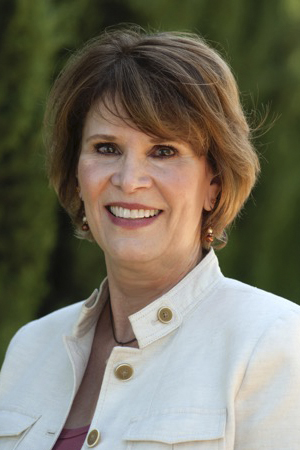
Judy van de Water, Ph.D.
Judy van de Water has a broad background in clinical immunology and immunopathology, with specific training and expertise in the gestational immune environment pursuant to this application. Over the past 18 years, she has expanded her research to include the immunobiological aspects associated with autism. As PI or co-Investigator on several university- and NIH-funded grants, she laid the groundwork for the proposed studies through my research on the potential role of immune dysfunction in neurodevelopmental disorders. This includes the maternal gestational immune environment, and how perturbation during gestation can impact the developing brain. Her work encompasses both the cellular immune response and the humoral immune response during pregnancy and how this relates to neurobehavioral disorders such as autism and schizophrenia with particular emphasis on the presence of highly specific maternal autoantibodies to fetal brain proteins. The current ReCHARGE project is an extension of her work on immune dysregulation and its impacts on brain function and development. Dr. van de Water provides the expertise for the maternal autoantibody development and testing. In addition, she has successfully administered the projects (e.g. staffing, research protections, budget), collaborated with other researchers, and produced several peer-reviewed publications from each project. She is currently Director of the NIEHS Center for Children’s Environmental Health, and the Co-Director of the NICHD-funded MIND Institute Intellectual and Developmental Disabilities Research Center, for which she runs the Biological Analysis Core (IDDRC-BAC). As a result of her current and previous experience, she is aware of the importance of frequent communication among project members, as well as construction of a realistic research plan, timeline, and budget. Further, she is cognizant of the importance for strong mentorship of students, post-docs, and junior faculty. She has a demonstrated record of successful and productive research projects in an area of high relevance with respect to immune dysregulation and the role of the environment in neurodevelopmental disorders. Within ECHO, she is a member of the Biospecimens and Blood Protocols working groups, and has joined and provided expertise to writing teams investigating immune function in children in relation to neurodevelopment and other outcomes.

